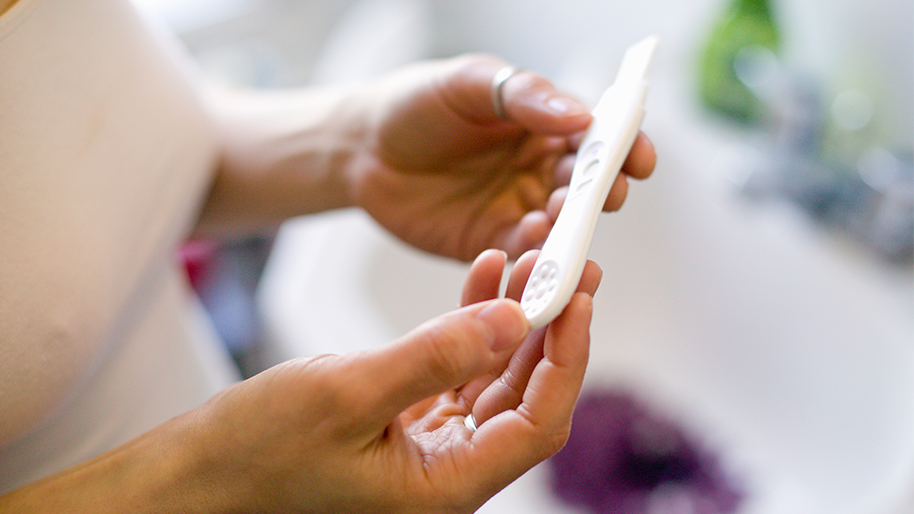Women’s Health & Fertility

Women’s Health & Fertility: Empowering Women to Achieve Reproductive Wellness
Introduction
Women’s health is a multifaceted journey that extends beyond just physical well-being. It encompasses reproductive health, hormonal balance, and the ability to conceive and carry a child to term. Fertility plays a central role in this aspect, influencing many women’s life choices, health decisions, and overall quality of life. Optimizing fertility requires a comprehensive approach that integrates lifestyle choices, nutrition, mental health, and medical care. By understanding the factors that affect fertility, women can take proactive steps to safeguard and enhance their reproductive health.
Understanding Women’s Fertility
Fertility is the ability to conceive and bear children. For most women, fertility peaks in their early 20s and gradually declines after age 30. Several factors influence fertility, including hormonal balance, ovulation, egg quality, and overall reproductive health. Conditions such as polycystic ovary syndrome (PCOS), endometriosis, fibroids, and age-related decline can all impact a woman’s fertility.
Hormones like estrogen, progesterone, and follicle-stimulating hormone (FSH) regulate the menstrual cycle and fertility. Any disruption in these hormonal levels can lead to irregular periods, difficulty conceiving, or other reproductive challenges.
Factors Affecting Women’s Health & Fertility
1. Age
Age is one of the most significant factors affecting fertility. As women age, both the quantity and quality of their eggs decline. While women are born with all the eggs they will ever have, egg quantity decreases with age, and the remaining eggs are often of lower quality. This decline becomes more pronounced after the age of 35, making conception more challenging.
2. Hormonal Imbalance
Hormonal imbalances are a common cause of fertility issues. Conditions like PCOS and thyroid disorders can lead to irregular cycles, anovulation (lack of ovulation), and reduced fertility. Balancing hormones through proper nutrition, stress management, and medical treatments can significantly improve a woman’s chances of conception.
3. Lifestyle Choices
Lifestyle factors like diet, exercise, smoking, alcohol consumption, and stress levels can impact fertility. Maintaining a healthy weight, exercising regularly, and avoiding harmful substances like cigarettes and excessive alcohol can improve hormonal function and increase the likelihood of conception.
- Nutrition: A nutrient-rich diet supports overall health, hormonal balance, and egg quality. Foods rich in antioxidants, vitamins, and healthy fats can help reduce inflammation and promote healthy reproductive function.
- Exercise: Regular physical activity supports hormone regulation and can help maintain a healthy weight, both of which are critical for fertility. However, excessive exercise or being underweight can negatively affect menstrual cycles and fertility.
4. Reproductive Health Conditions
Several health conditions can affect fertility in women. Conditions like endometriosis, fibroids, pelvic inflammatory disease (PID), and blocked fallopian tubes can disrupt the reproductive system and reduce a woman’s chances of becoming pregnant. Early diagnosis and treatment are key to managing these conditions and improving fertility outcomes.
- Endometriosis: A condition where tissue similar to the lining of the uterus grows outside the uterus, causing pain and potentially impacting fertility.
- Fibroids: Non-cancerous growths in or around the uterus that can interfere with conception and pregnancy.
- Pelvic Inflammatory Disease (PID): An infection of the reproductive organs that can lead to scarring and infertility if left untreated.
5. Stress and Mental Health
Chronic stress and mental health conditions like depression and anxiety can impact fertility. High levels of stress can interfere with hormone production, ovulation, and menstrual cycles. Additionally, stress can contribute to unhealthy lifestyle choices, such as poor eating habits and lack of sleep, which further compromise fertility.
Practices such as mindfulness, meditation, yoga, and counseling can help manage stress, improve emotional well-being, and enhance fertility.
Optimizing Fertility and Women’s Health
1. Nutrition for Fertility
A healthy, balanced diet is essential for optimal fertility. Key nutrients that support reproductive health include:
- Folic Acid: Critical for preventing birth defects and supporting healthy egg production.
- Antioxidants: Found in fruits and vegetables, antioxidants like vitamins C and E protect eggs from oxidative damage and improve egg quality.
- Omega-3 Fatty Acids: Help regulate hormones, reduce inflammation, and promote healthy reproductive function.
A diet rich in whole grains, lean proteins, healthy fats, and plenty of fruits and vegetables can support hormonal balance and overall fertility.
2. Managing Hormonal Balance
Hormonal health is critical to fertility. Women with conditions like PCOS or thyroid disorders may benefit from hormonal therapy to regulate menstrual cycles and improve ovulation. Medical interventions, such as medications that stimulate ovulation, may also be recommended for women facing challenges with conception.
3. Regular Exercise and Weight Management
Maintaining a healthy weight is essential for reproductive health. Being overweight or underweight can lead to hormonal imbalances, which may interfere with ovulation and fertility. Regular exercise, combined with a balanced diet, can help regulate hormones, improve metabolism, and maintain a healthy weight.
4. Seeking Professional Help
If fertility issues persist, seeking professional help is crucial. A fertility specialist can evaluate reproductive health, recommend necessary tests, and develop a treatment plan tailored to individual needs. In some cases, assisted reproductive technologies (ART) such as in vitro fertilization (IVF) or intrauterine insemination (IUI) may be necessary.
Mental Health and Women’s Fertility
Mental and emotional health are intertwined with physical health, especially when it comes to fertility. Coping with fertility challenges can be emotionally draining, leading to feelings of stress, sadness, or anxiety. Seeking emotional support from loved ones or a therapist can help manage the mental strain of fertility struggles.
Taking time for self-care, engaging in stress-reducing activities, and building a support network can improve emotional well-being and, in turn, positively affect fertility.
Conclusion
Fertility and women’s health are deeply interconnected, with various factors influencing a woman’s ability to conceive and maintain a healthy pregnancy. Understanding these factors and taking proactive steps to optimize health—such as maintaining a healthy lifestyle, managing stress, and addressing reproductive health conditions—can significantly enhance fertility. Empowering women with the knowledge and tools to prioritize their health and fertility ensures that they can make informed choices and achieve reproductive wellness.




Leave a Comment